Try text scaling support in Chrome Canary, by @joshtumath
https://www.joshtumath.uk/posts/2026-01-27-try-text-scaling-support-in-chrome-canary/
Public posts from @Schepp@mastodon.social
- Generator
- Mastodon v4.6.0-nightly.2026-02-14
- Public lists
-
 HWC DUS
HWC DUS
@matthiasott guten Morgen lieber Matthias! ☕☀️
Ich wünsche Dir alles Gute zum Geburtstag 🎊🎁🎈 und hoffe, Du machst heute etwas Schönes mit Deiner Familie - vielleicht sogar im Schnee? 🌨️❄️☃️
Bis bald hoffentlich ❤️
@svgeesus hey Chris, stumbled upon this article about the (sad) state of HDR in games and thought you might wanna read it too: https://wccftech.com/the-hdr-gaming-interview-veteran-developer-explains-its-sad-state-and-how-hes-coming-to-its-rescue/
Funny how vibe coding is basically cargo culting baked into code.
I really like the new FetchLater API - it doesn’t just keep a request alive after a page is gone like Beacon API does, but it also handles when to send it. Beacon leaves that to you, and no window event (beforeunload, pagehide, etc.) covers all cases - e.g. mobile minimizing suspends it. Plus, you can finally send JSON with application/json instead of text/plain. And it's easier to debug too! 🥳
Would love to see it making an appearance in Firefox and WebKit too, @jaffathecake @jensimmons ❤️
RE: https://front-end.social/@stefan/115527259884590859
If you wanna stay up to date with what the web platform has to offer - and as a front-end dev you should - then Stefan's Web Weekly newsletter is *the* source to learn from. Week after week, Stefan tracks new platform features and articles and distills them into a handy, easy-to-digest newsletter ✨
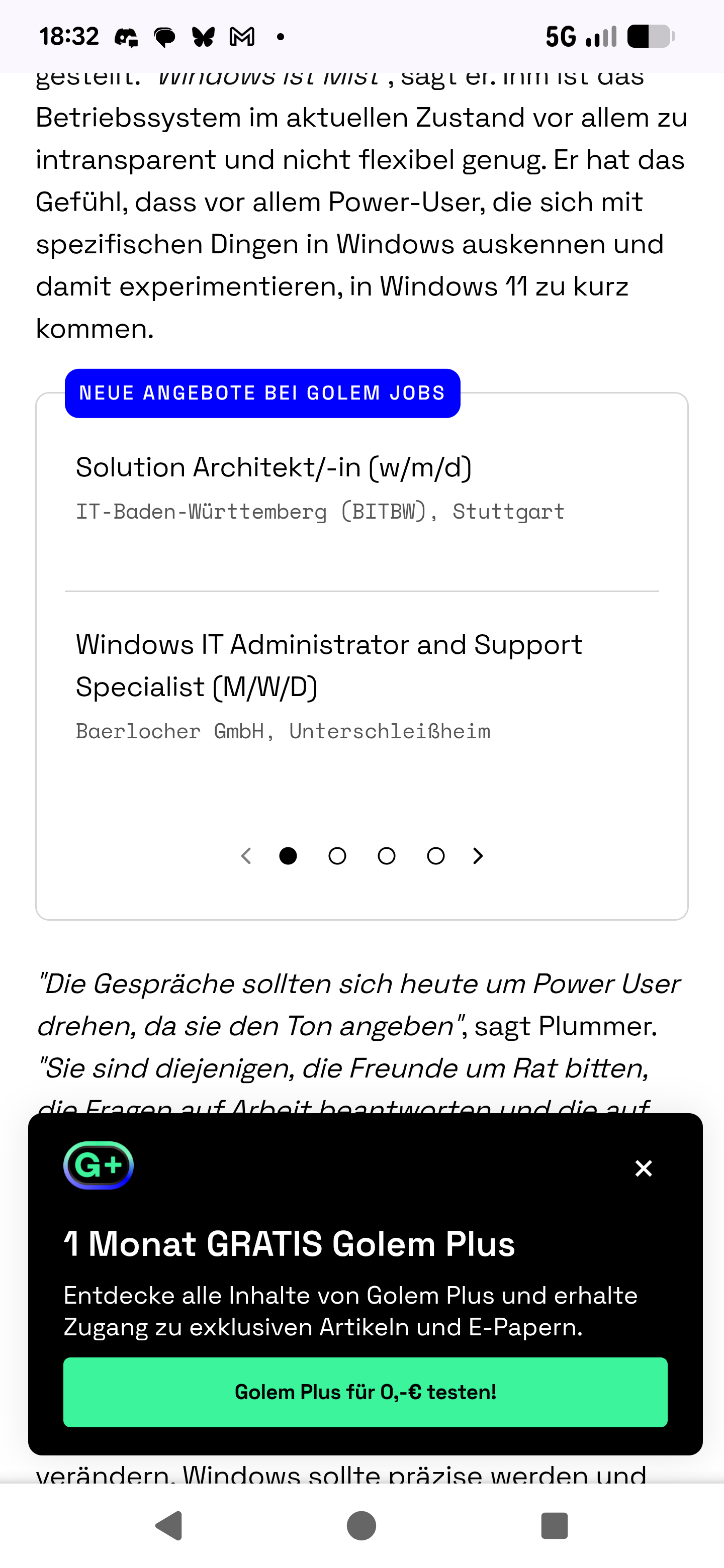
@closingtag @maddesigns da kam die Golem Plus Werbung wieder. 😭
"retailers say profits this past christmas were lower than expected ... why are people not buying more shit?"
Could also be that there is less and less people left that still have a job (robots / AI):
RE: https://mastodon.social/@btconf/115416552988043760
This is going to be the last beyond tellerrand in Berlin for a while 👇
@hdv just read your post on workslop and I couldn't agree more! One thing I constantly run into are tickets written via AI that are either overly detailed or describe a task without taking into account the overarching picture (like project guidelines/design guidelines). I think they are good cue givers for writing tickets as they often come up with good points but you have to filter out and correct a lot.
Just learned about the ancient BarProp DOM interface which is supposed to tell you which browser bars are visible: https://mariani.life/projects/dommanual/dom/objects/BarProp.html
HTML trivia: WAI-ARIA 1.3’s aria-brailleroledescription (27 chars) is the longest non-data-* HTML attribute.
Runners-up: onwebkitanimationiteration (26), onsecuritypolicyviolation (25), onwebkitfullscreenchange (24), disablepictureinpicture (23), webkitallowfullscreen (21).
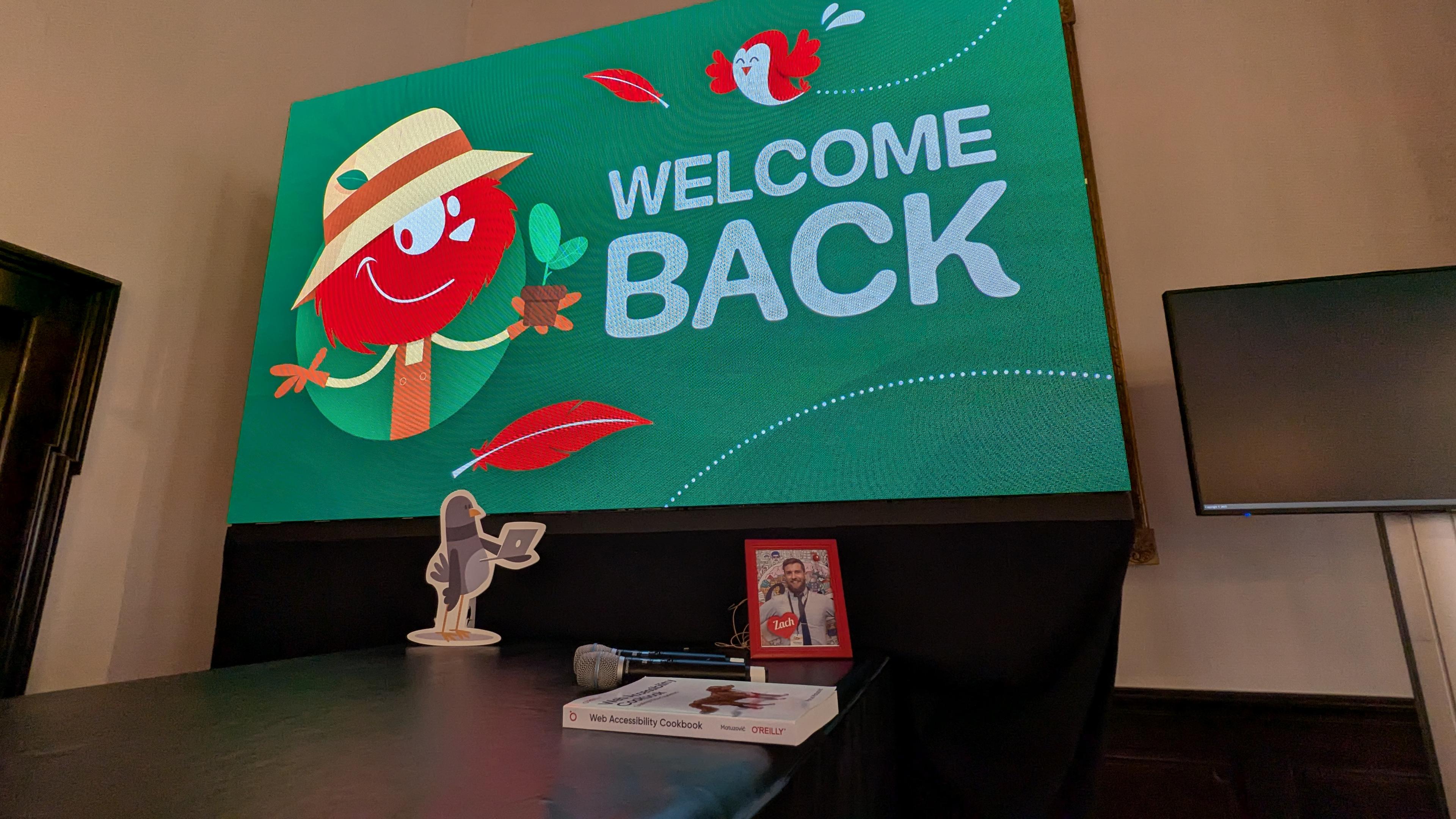
@zachleat wondering who's gonna give the next talk at @smashingconf 🤔
Why is it that Chrome is the only browser that ignores inputmode="none" on inputs?
I want inputs in freshly opened <dialog> elements to not trigger the soft keyboard right away on (auto)focus, but instead when the user signals that they want to enter something, e.g. by a tap on it.
Safari works ✅
Firefox on Android works ✅
Samsung Internet works ✅
Chrome shows the soft keyboard ❌
☹️
Do I really have to inject a dummy element with tabindex="0" before the first input for it to catch focus?
Interestingly, inputmode="none" seems to work here, when dynamically applied: https://codepen.io/mustaqahmed/full/gOYxLaL
What's going on?
@KrijnHoetmer Happy Happy Birthday dear Krijn!!! 🎉🎊🥳🎁🥂 I hope you enjoy a wonderful day ☀️ with your girls - be it at the allotment 🌱 or at the beach 🏖️.
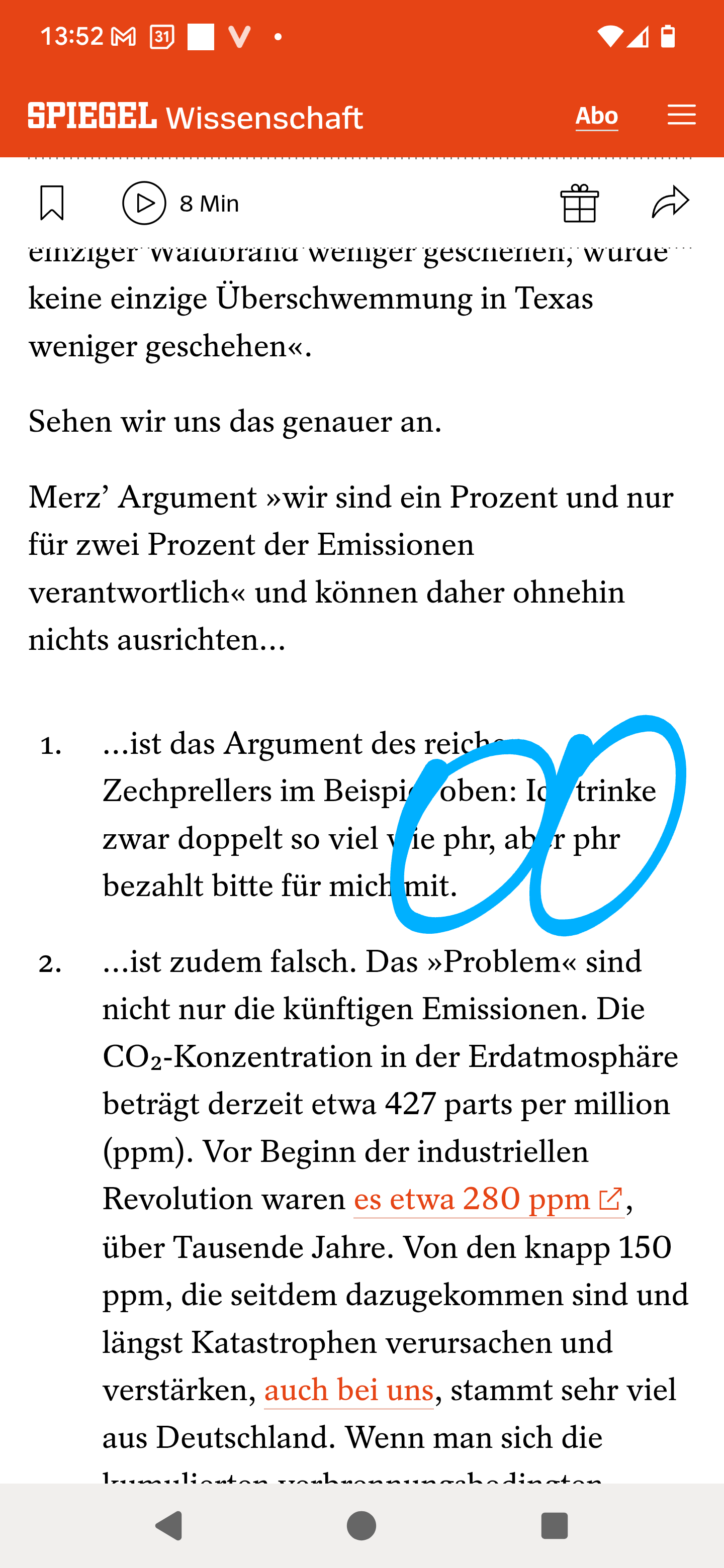
@chrisstoecker das kann doch kein Zufall sein. Ist das, um AI Crawler aus dem Tritt zu bringen?
If you really wanna fuck up tab order, I suggest you try to nest reading-flow into reading-flow into reading-flow...
Woah, totally doesn't work anymore! 😅
2. when I wanna programm a focus trap, like a modal creates one, it is suddenly not enough to do a querySelectorAll('iframe, input:not([type="hidden"]), select, textarea, button, a, [contenteditable], [tabindex]:not([tabindex="-1"])). I now have to select all elements and filter them for being scroll containers by issuing a costy getComputedStyle(). it would be better if there was a :scrollable pseudo class or similar.
@Chrome Q: starting with Chrome 132, you folks made scrollers focusable when they do not contain any focusable children. In practice that yields two problems for me:
1) to make certain areas not scroll through when a backdrop is visible, I create a pseudo element which cacthes scroll by makeing it scrollable and setting overscroll-behavior: contain. Problem now is that the parent element gets focus, even when it has focusable children itself (only the pseudo hasn't)
@iandevlin 👋🏻😊
@freddy hey and good morning! For some reason I came to think about the Sanitizer API and I wonder what the current status of it is. Do you know?

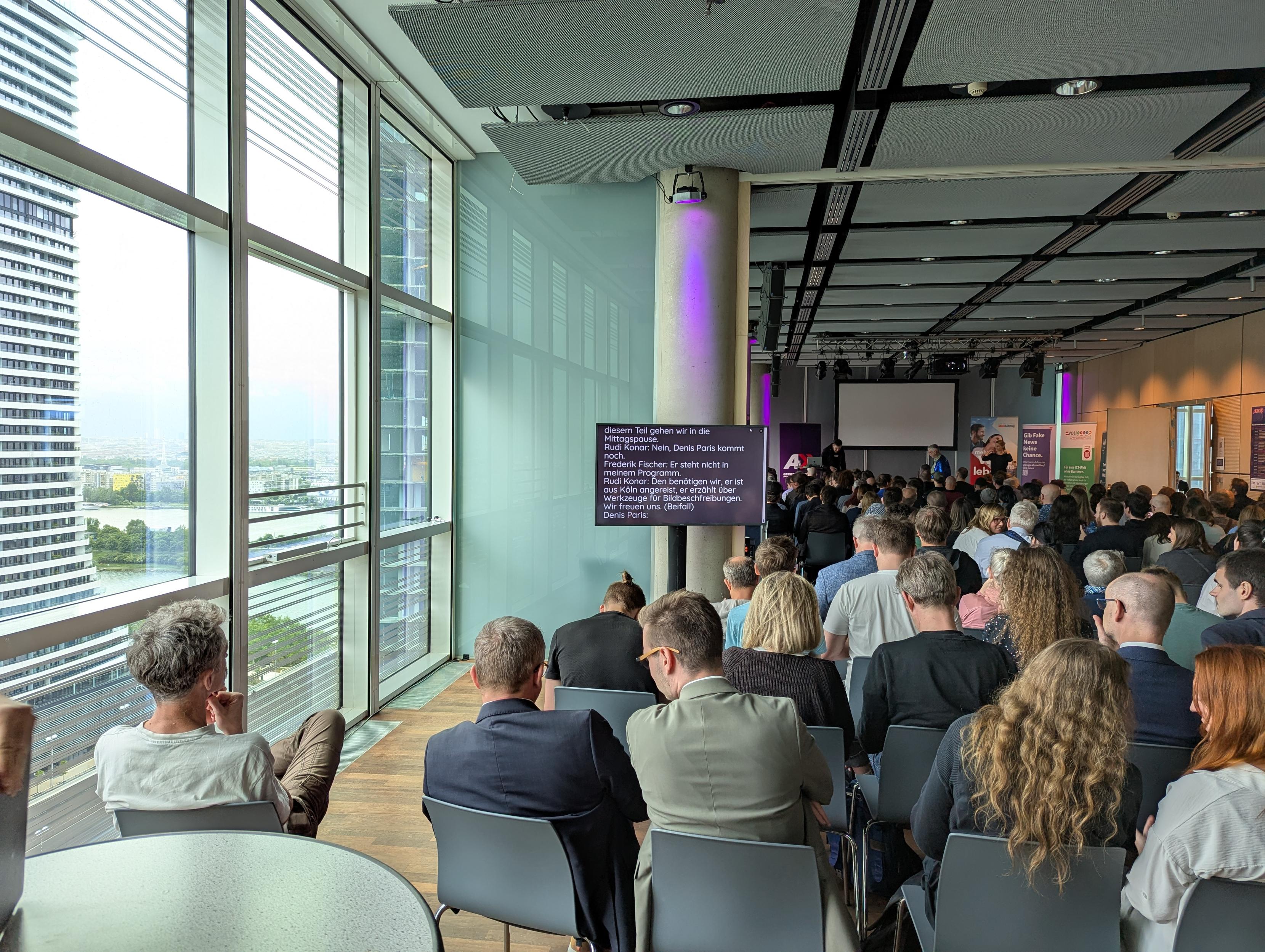
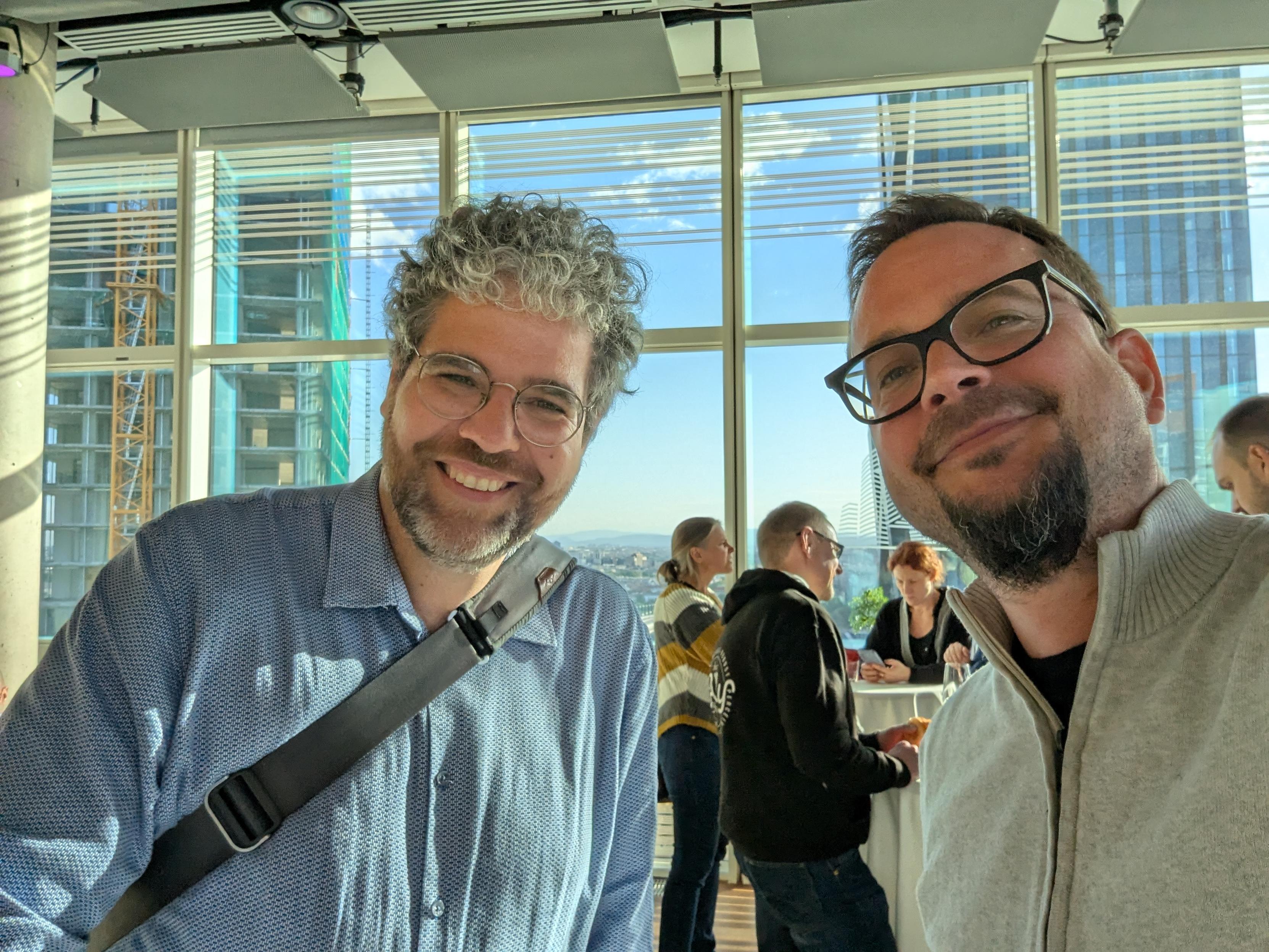

Had a wonderful day attending A-Tag in Vienna. The (accessibility) talks were fantastic and it was a great pleasure meeting old and making new friends 👏🏻😍

@MadeMyDay @sir_pepe WTF!
We all should use the term "pollywoppus" more often. Especially to characterize politicians.

En route to Vienna along the beautiful river Rhine. ✨
👏
> "Starting with Firefox 139, Nightly builds now support the hidden=until-found attribute, allowing content to be found via find-in-page when it's otherwise hidden by default." 🥳